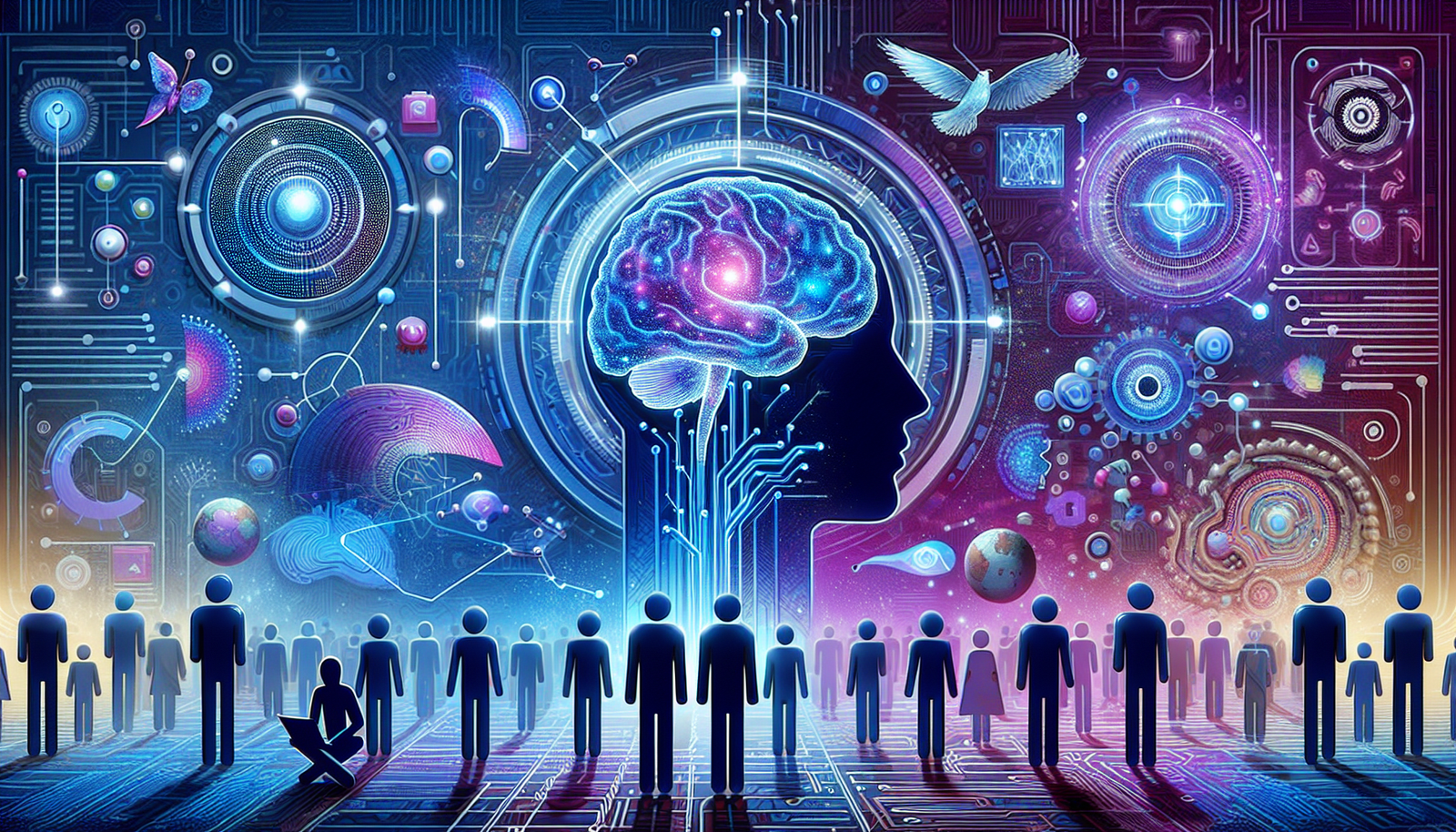The digital era requires redefining the contours of ethics and morality. Technology, under the aegis of artificial intelligence, raises existential questions about the responsibility of our choices. The ability of algorithms to decide for us admits deep and disturbing implications. Is it wise to allocate our moral dilemmas to a machine? Furthermore, the boundary between artificial rationality and human discernment is blurring, creating unprecedented tensions. Data transparency and privacy management are becoming priority issues. Issues related to information overload and the loss of free will are advancing contemporary ethical debates. Reflection is needed on the place we offer technology in the governance of our core values.
Ethics and Moral Dilemmas in the Digital Age
The transition to a digital society raises profound questions regarding ethics. The massive collection of data, often without users’ knowledge, alters our relationship with privacy and information security. Scandals such as the Cambridge Analytica incident illustrate the need for ethical reflection on the use of personal data.
Artificial Intelligence and Ethical Responsibility
Algorithms, omnipresent in our daily lives, are often devoid of moral values. They make decisions based on statistical models, without considering the ethical implications of their choices. This ability to influence human lives raises increasing concerns regarding their *responsibility* and reliability.
The Role of Algor-Ethics
The concept of algor-ethics is gaining traction, questioning the foundations governing the production and use of algorithms. This term refers to an ethical reflection on how algorithms operate, advocating for greater transparency and an appropriate legal framework. Thus, society must consider the responsibilities related to the use of technology that could, if misdirected, exacerbate social fractures.
Vulnerabilities in the Age of AI
The question of human vulnerability in the face of artificial intelligence deserves special attention. The communicational efficiency that digital technology brings can, moreover, reinforce social distancing. The *necessity for balance* between technological advantages and human involvement appears as a fundamental issue.
The Challenge of Transparency and Data Security
Transparency remains a major issue in a world governed by Big Data. Users must understand how their data is used and who has access to it. Without sufficient guarantees, anxiety about potential information overload intensifies. The *current legal frameworks*, such as GDPR, aim to protect individuals, although their application may be insufficient.
Moral Conflicts Between Humans and Machines
Decisions made by artificial intelligence are often questioned when moral values are at stake. The difficulty lies in the fact that these systems cannot truly understand the emotional and ethical nuances that underpin human choices. They may excel at data analysis, but their shortcomings in terms of empathy raise questions.
Can We Trust AI for Our Ethical Choices?
Entrusting moral dilemmas to artificial intelligence poses unique challenges. The *human nature*, with its complexity and emotions, does not always align with statistical logic. Concerns about algorithmic bias accumulate, reinforcing the idea that technology should not replace human judgment, especially in the ethical domain.
Perspectives on Education and Training
Education in digital ethics is becoming essential in light of the issues posed by AI. Training future professionals must incorporate ethical dimensions in system design. This way, a culture of responsibility can emerge, promoting a conscious use of digital technologies.
Conclusion on an Ethical Future
The balance between technological innovation and human values requires constant vigilance. As technology continues to evolve, discussions around digital ethics must be at the heart of societal reflections. The need for legal and ethical oversight is becoming paramount, foreshadowing a future where AI respects our fundamental values.
Frequently Asked Questions on Ethics in the Digital Age
What is digital ethics and why is it important?
Digital ethics refers to the principles and values that govern our behavior online and the use of digital technologies. It is essential for protecting individual rights, ensuring data security, and maintaining trust in digital systems.
Can we really trust an artificial intelligence to make ethical decisions?
Although artificial intelligences can analyze enormous amounts of data, their lack of emotional understanding and human context raises questions about their ability to make truly ethical decisions.
What are the main moral dilemmas associated with the use of artificial intelligence?
Dilemmas include privacy protection, algorithmic bias, the responsibility of decisions made by an AI, and the consequences of social distancing caused by excessive trust in technology.
How does algorithmic transparency contribute to digital ethics?
Transparency allows users to understand how their data is used and how decisions are made by algorithms, thus reinforcing trust and ensuring greater accountability.
What role does human responsibility play in AI decisions?
Human responsibility is crucial, as even if an AI makes decisions, designers and users must remain accountable for the ethical implications of those choices.
Can biases present in algorithms be eliminated?
While biases can be reduced through proper training and ongoing monitoring, it is difficult to completely eliminate biases due to the complexity of data and cultural contexts.
How to educate future AI users on ethical issues?
It is essential to integrate ethical education into school and professional programs, emphasizing critical reflection on digital technologies and their social impacts.
What is the stance of legislators on digital ethics and artificial intelligence?
Legislators are beginning to establish regulatory frameworks to govern the use of AI, emphasizing data protection, transparency, and respect for individual rights.
Can artificial intelligences develop an ethical consciousness?
Currently, artificial intelligences do not have the capacity to develop ethical consciousness; they operate based on programmed directives and the data they are trained on, without real moral understanding.
What are the challenges associated with the ethical evaluation of digital technologies?
Challenges include the rapid evolution of technology, the diversity of cultural contexts, differences in societal values, and the lack of shared standards to assess ethical impacts.






